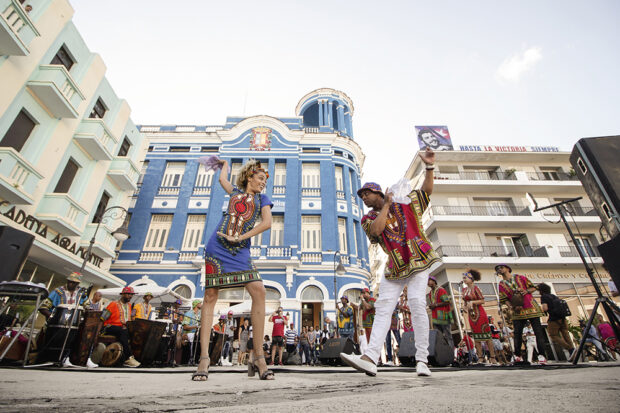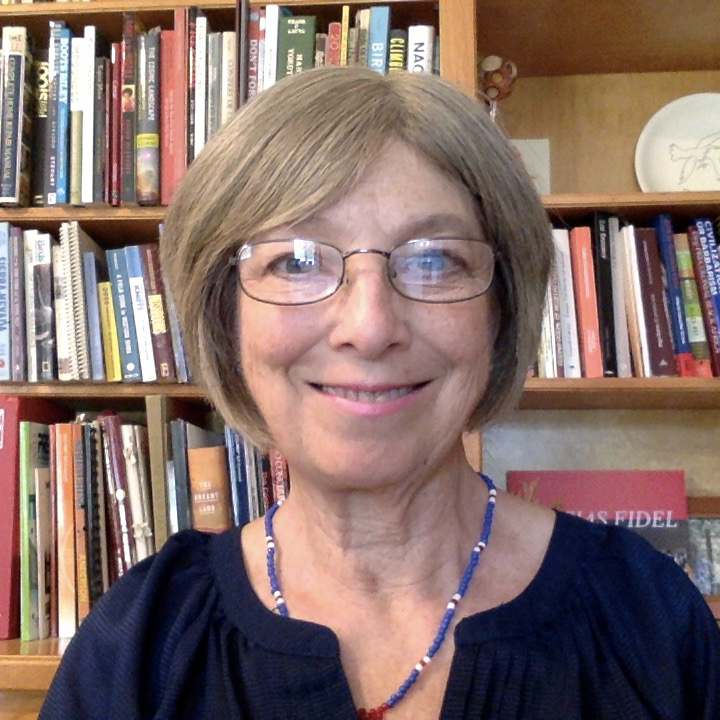
Fidel Castro said, “Lo primero que hay que salvar es la cultura (The first thing to save is culture).” He was speaking at the beginning of the Special Period, the time when Cuba lost more than 80% of trading partners when the Soviet Bloc came apart and the United States increased the trade restrictions of the blockade.
Cuba suffered but survived that period. The culture of resistance and of revolution survived, as did the culture of Cuban literature, music, scholarship, poetry and thought.
Cuba is currently in another Special Period. The pandemic was successfully overcome, as Cuba developed vaccines and public health measures that were, in conjunction with the Cuban free universal public health system, effective in making Cuba one of the countries with the lowest Covid-19 mortality. But it took literally everything they had.
Now, Cuba is in a period of worldwide inflation as well as induced inflation (you can look at U.S. actions in Venezuela to see a textbook example of how the United States manipulates the exchange to produce wild inflation in “enemy countries” as a means of social and government destabilization).
The Biden administration, far from keeping its campaign promises to move toward normalization of relations with Cuba, has correctly identified fuel as a vulnerable point in this country’s economy and has attacked Cuba’s fuel supply by every possible means—threats and fines toward shippers, insurers, banks and even the piracy of the high seas seizure of an Iranian vessel.
Cuba is suffering. Cuba will survive, but right now it’s very hard for the people.
The U.S. rhetoric of being “for the Cuban people” is as cynical as it could possibly be. The U.S. government has no interest in the well-being of the Cuban people, but it would very much like to manipulate them to bring about the fall of a sovereign and socialist government that represented hope to many in Latin America and the world, but meant denial of exploitation to U.S. interests.
As expressed in the Mallory memo of the State Department: “Every possible means should be undertaken promptly to weaken the economic life of Cuba…a line of action which, while as adroit and inconspicuous as possible, makes the greatest inroads in denying money and supplies to Cuba, to depress monetary and real wages, to bring about hunger, desperation and overthrow of government.”
In the human context of these difficulties, Cuba is still standing, proud and free.
Food and fuel are priorities as are education and culture. I had the opportunity to attend AFROPALABRA, the 17th celebration of a biannual festival of oral expression and narration, with an AfroCuban/AfroAmerican, in its broadest sense, focus, directed by Mirta Portillo and Sinecio Verdecia. Theory and practice, oral narration and culture over a five-day period, briefly interrupted by floods on Day 4, represented the power of the word and the story.
A special guest, Bonifacio Offogo, from Cameroon, who presented his narrations and his book, El Imperio de los Cautivos, brought an African perspective on narration and on Cuba. “I wanted to be someone who told the story of the fall of neocolonialism.”
He spoke with respect to those who had preserved the culture of Africa in the Diaspora: “Due to the power of the word, of the story, of the oral tradition and legacy, African culture still reaches us today in the Diaspora.”
This, he said, is a miracle and those who transmitted their culture under these conditions are and were truly “human monuments.”
“Cuba is a key country in the history of the world and of Africa.
“You cannot imagine the love for Cuba that people have in Africa; Cuba is united forever with Africa, and every time I come to Cuba I feel strengthened as a human being.”
Daisy Brau, from Cuba, and her group of Cantos Arará of Dahomey led the closing festival, and many AfroCuban and AfroColombian artists joined to lead a celebration of the living preservation of culture.
Cuba depends on the use of public transportation, especially in Havana, which is geographically huge. The buses used to be cheap, frequent, reliably present. Now they are still cheap, but there isn’t enough fuel to run enough buses for the people who need to get places, like to work and back.
All kinds of alternatives are being tried: bicycles, some of which are obviously ridden by older folks who first rode during the first Special Period; electric scooters; bicycle and motor-driven tuk-tuk style taxis; and mini buses called gazelas, letting people jam together tighter and tighter on the bus. And, significantly in the personal economy for many Cubans, there are route-taxis that charge according to the driver’s conscience and the conditions.
Frustration about transportation is a constant theme. There also isn’t enough fuel to run all the necessary garbage trucks. There isn’t nearly as much talk about this, but it’s present as a serious part of the urban environment for people here; it’s unpleasant and garbage attracts garbage.
I saw a woman raking up stuff and putting it in a dumpster, but most neighborhood dumpsters are overflowing already, and, significantly, she was elderly. However, when I happened to pass her corner about 10 days later the whole area was still clean. Is it all her work or have others been inspired?
So when I was invited to Theater Aldama, one of the attractive points was that it is within walking distance of where I stay in Marianao, a working-class neighborhood in Havana. This is another valiant effort, successful so far, led by Director Irene Borges Lara.
The restoration of the theater is under way, and already morning programs for children are being presented on Sundays. As soon as they achieve some air-conditioning, they will open the larger auditorium and stage for adult productions later in the day.
On the day I attended, Dolores Romero, of the Grupo Barco Antillano, presented “Ola que va donde las aguas van (Wave that goes where the water goes)” quite literally out of a (large) suitcase as the props must be carried—you guessed it: on the bus. The story of the woodpecker fledglings who wanted to become sailors and persisted despite all obstacles, and their mother’s worries, until they achieved their goal worked for me and for the enthusiastic group of children and parents who paid a token admission to be present.
This is Cuba, unstoppable, following its dreams and ideals, its revolution and its African culture of resistance, rebellion and power of the story, of the word that has been spoken and that no one can now unsay, not even with all the power of the U.S. government.

